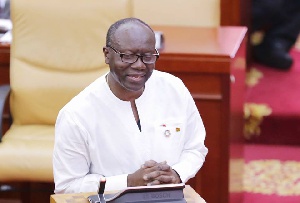While the banking sector reforms have been tipped to balloon public debt to some 72.4% of GDP, the GH¢8billion cost the reforms come with is also a billion more than government’s capital expenditure for 2018.
To secure the deposits of customers, government issued a GH¢2.2billion bond – almost one percent of GDP – at a coupon rate of 12 percent to cushion GCB Bank which took over the assets and liabilities of UT and Capital Banks.
Then earlier this month the central bank added a new bond of GH¢5.87billion, 2.6 percent of GDP, to support the Consolidated Bank which is taking on some selected assets and liabilities of uniBank, Sovereign, Beige, Royal and Construction banks.
This brings the total debt burden to GH¢8billion – 3.6 percent of GDP, which is almost GH¢1billion more than the GH¢7.1billion Capex stated in the mid-year budget.
Government’s capital expenditure allocation is what is used for the provision of social infrastructure and other social amenities. The figure is said to be inadequate regarding the huge infrastructure deficit, estimated to be in the region of US$30billion.
According to the World Bank, the country needs to spend in excess of US$1.5billion annually over the next decade to bridge the gap.
The central bank has said the bonds issued for clearing the collapsed banks’ liabilities will be borne by the taxpayer, although an agreement has been reached with the IMF not to capture it as part of public debt.
That notwithstanding, ratings agency Moody’s has said that issuance of the bonds will push the economy’s debt-to-GDP ratio to 72.4 percent by end of this year before declining to 68.9 percent by end-2019 – a level higher than previously anticipated due to the 2.6 percent of GDP costs associated with formation of the Consolidated Bank, coupled with the 0.9 percent of GDP costs associated with the resolution of UT and Capital Banks.
“Ghana’s large debt stock, low debt affordability and exposure to foreign exchange-related valuation changes underpin our ‘Very Low (-)’ assessment of its fiscal strength, a key constraint to the sovereign’s credit profile,” the agency said in its review of the banking sector reforms.
Business News of Monday, 13 August 2018
Source: thebftonline.com













